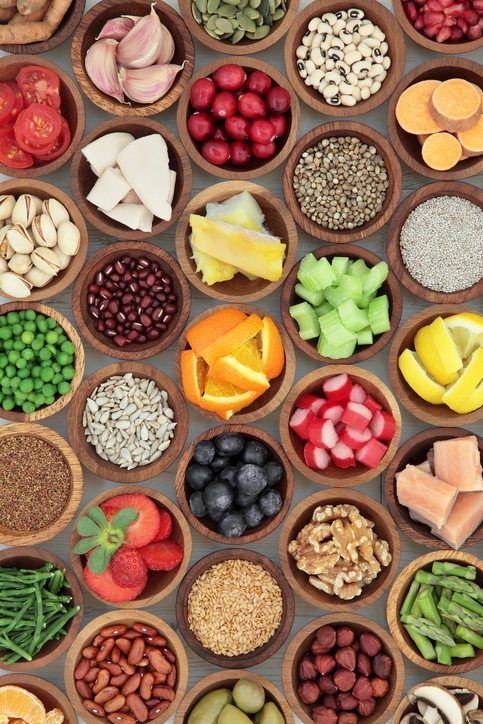
A healthy diet should include fruits and veggies. Many fruits and vegetables are rich in protein, vitamin D, B12, iron, and other nutrients. Some eggs have omega-3 fatty acid fortifications, which aid in brain development. A cup fruit contains around 12 calories. Most fruits have small pieces. For a snack, you can either serve fresh or dried fruits with peanut butter.
Juice should only be consumed in moderation. Limit your intake to one or two drinks per day if you wish to control your child's sugar intake. Instead of putting juice on the child's plates, offer them a bowl of real fruit. This will increase fiber and other nutrients in their diet. Juice may also cause them to drink excessively between meals. This can be harmful for their health. You need sodium to maintain body fluids and nerve function. But too much sodium can increase your risk of developing heart disease or high blood pressure. Most processed foods have high sodium levels.

A new study has shown that 60 percent are unfit for children. In a survey of 156 products, the researchers found that more than half of them contained added sugar, 15.4% had saturated fat and seven percent had salt. The researchers also looked at how companies label their "healthier" foods and what they contain. These foods were often highly processed and the ingredients weren't listed. They often lack the vital vitamins and minerals that children require to grow up healthy and strong.
Sugary and processed foods have health risks that parents should be aware of. Parents should be mindful of their overall health and ensure that they are providing whole foods. Keep your children away from processed foods and place emphasis on healthy food. Instead, they should encourage their children to eat foods rich in vitamins and minerals. This will encourage positive eating habits for the future. There are many options to encourage your child eat more fruits, vegetables, and other healthy foods. Your child can follow your example and eat a healthy diet.
Children should be provided with varied fruits and vegetables and limited juice intake. Each meal should contain at least one serving of each. A toddler should consume one cup of fruit and vegetables per day, while a boy aged 14 years old should consume three cups. Flaxseed, omega-3 fatty fatty fish, and omega-3 are excellent sources of fats. Some fruits and vegetables are high in antioxidants and fiber.

Milk is an excellent source of calcium and vitamin D, and it helps build strong bones. It also has approximately 8 grams of protein. The minimum age for children to be allowed to consume dairy products is two years. Children should limit their intake to eight ounces of cow’s milk per day. Once children reach this age, they can start to drink low-fat dairy milk. Although cheese and yogurt might not be considered healthy, they provide great sources calcium and vitamin A.
FAQ
These are the 7 secrets to a healthy life.
-
Eat right
-
Exercise regularly
-
Sleep well
-
Get plenty of water.
-
Get enough sleep
-
Happy!
-
Smile often
How does weight change with age?
How do you know if your bodyweight changes?
Weight loss occurs when there is less fat than muscle mass. This means that daily energy needs must be greater than the calories consumed. Activity levels are the most common reason for weight loss. Other reasons include poor eating habits, stress, hormone imbalances, certain medications and illness. A person who has more fat than their muscle mass will experience weight gain. It occurs when people consume more calories each day than they use. Overeating, increased physical activity and hormonal changes are all common reasons.
The main reason why our bodies lose weight is because we consume fewer calories than we burn. The main reason we lose weight is because we exercise more often. This increases our metabolism rate and burns more calories each day. However, this doesn't mean that we'll necessarily get thinner; what matters is whether or not we're losing fat or gaining muscle. If we're burning more calories than we're consuming then we're going to lose weight. But if we're consuming more calories than we're burning, then we're actually storing them as fat.
As we grow older, we tend to become slower at moving around and therefore we don't move as much. We also tend to eat less food than we did when we were younger. Therefore, we tend to put on weight. On the flipside, we are more muscular than we really need and appear bigger.
There's no way to tell how much weight you've lost unless you weigh yourself every week. There are many options for measuring your weight. You can measure your waist, hips and thighs as well as your arms. Some people prefer to use a bathroom scale while others prefer to measure with tape.
If you want to track your progress, you should try weighing yourself once a week and measuring your waistline once a month. You can also take pictures of yourself every few months to see how far you've come.
You can also look up your height, weight and body measurements online to determine how much you weigh. If you're 5'10' tall and weigh 180lbs, you'd likely weigh 180lbs.
What are 5 ways to live a healthy lifestyle?
Healthy living means eating right, exercising regularly and getting enough sleep. It also involves managing stress and having fun. You should avoid processed foods, sugar, or unhealthy fats. Exercise helps burn calories and strengthens muscles. Sleeping enough can improve memory and concentration. Stress management can reduce anxiety and depression. Fun keeps us happy and healthy.
Which lifestyle is best for your health?
A healthy lifestyle means eating healthy foods, exercising regularly, sleeping well, and avoiding stress. If you follow these guidelines, you will be able to lead a long and healthy life.
Start small by changing your diet and exercising routine. Try walking for 30 minutes each day to lose weight. Or, if you want to get more active, take up swimming or dancing. A Fitbit or Strava online program that tracks your activity can be joined.
Statistics
- WHO recommends reducing saturated fats to less than 10% of total energy intake; reducing trans-fats to less than 1% of total energy intake; and replacing both saturated fats and trans-fats to unsaturated fats. (who.int)
- According to the 2020 Dietary Guidelines for Americans, a balanced diet high in fruits and vegetables, lean protein, low-fat dairy and whole grains is needed for optimal energy. (mayoclinichealthsystem.org)
- Extra virgin olive oil may benefit heart health, as people who consume it have a lower risk for dying from heart attacks and strokes according to some evidence (57Trusted Source (healthline.com)
- This article received 11 testimonials and 86% of readers who voted found it helpful, earning it our reader-approved status. (wikihow.com)
External Links
How To
How to stay motivated to stick to healthy eating and exercise
Staying healthy is possible with these motivation tips
Motivational Tips For Staying Healthy
-
Write down your goals
-
Set realistic goals
-
Be consistent
-
Reward yourself when you achieve your goal
-
Don't give up if you fail at first
-
Have fun